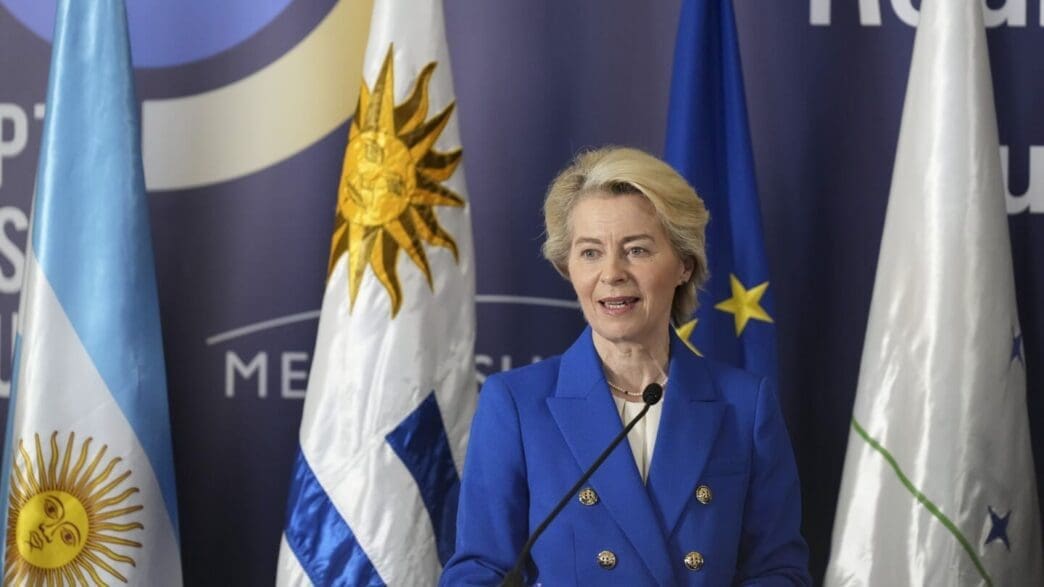In a significant development after years of negotiation, the European Union (EU) and the Mercosur bloc have finalized a free trade agreement, announced by European Commission President Ursula von der Leyen. This decision, declared during the Mercosur Summit in Montevideo, Uruguay, marks a monumental shift towards establishing one of the largest free trade zones, impacting over 700 million people and approximately 25% of the global GDP.
The EU-Mercosur agreement is poised to reduce tariffs and dismantle trade barriers, thereby facilitating smoother trade between the regions. This expansive agreement, akin to the U.S.-Mexico-Canada free trade agreement, is designed to bolster business operations by simplifying processes involved in exporting goods. This deal encompasses countries within the Mercosur bloc, namely Brazil, Argentina, Paraguay, Uruguay, and Bolivia, with Venezuela’s membership currently suspended indefinitely.
Despite the announcement, the deal’s implementation is not without hurdles. France, among other EU member countries, continues to harbor reservations regarding the pact. All 27 EU member countries must approve the agreement for it to come into effect. Von der Leyen, acknowledging the concerns particularly from farmers in countries like France, has emphasized the potential benefits. She projects substantial business growth through reduced tariffs and simplified customs procedures, alongside preferential access to essential raw materials.
However, gaining consensus has been a lengthy process. Initial discussions began at a summit in Rio de Janeiro in 1999, but progress was hampered by differing economic priorities and regulatory standards between the two regions. In the past decade, efforts were renewed with a focus on tariff elimination, peaking in 2019 with an agreement on tariff reduction and environmental commitments. But European apprehensions regarding deforestation in the Amazon under Brazil’s previous administration stalled progress.
Brazilian President Luiz Inácio Lula da Silva, representing a significant voice in Mercosur, has expressed strong support for the agreement. His administration, since its return to power in 2023, has driven the momentum towards finalizing this deal. This marks a distinct shift from his earlier stance over two decades ago when he opposed such an agreement. Similarly, Argentina’s political landscape has seen a change of heart under President Javier Milei, who supports the new pact after previous opposition by outgoing officials.
The EU-Mercosur free trade deal represents a critical juncture in international trade relationships, promising economic growth and expanded business opportunities. While the agreement has been met with mixed reactions, it stands as a testament to the persistent diplomatic efforts over 25 years, underscoring the complexity, yet necessity, of international collaboration.
Source: Apnews








